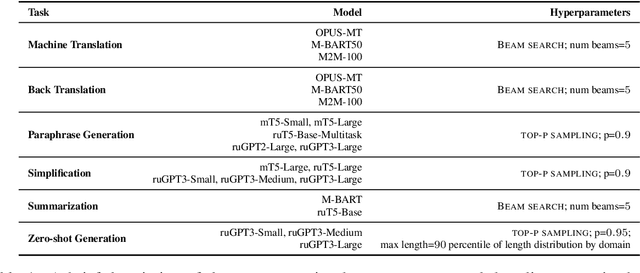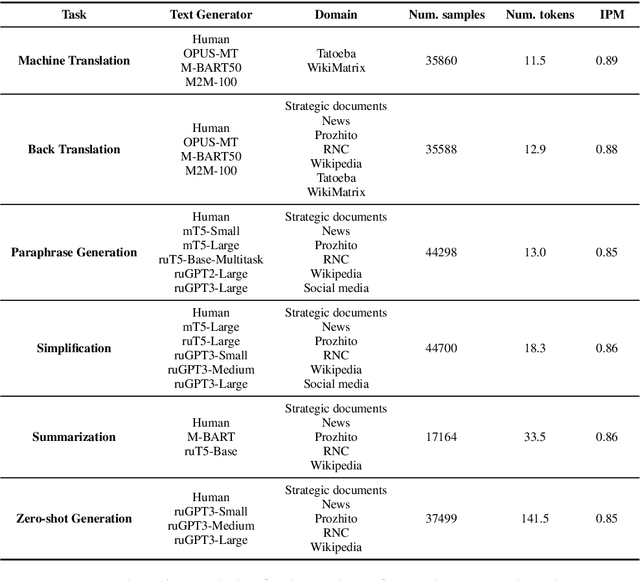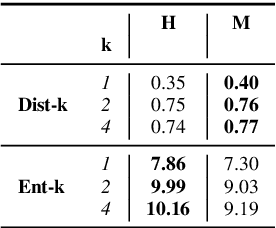Tatiana Shamardina
RuCoLA: Russian Corpus of Linguistic Acceptability
Oct 23, 2022



Abstract:Linguistic acceptability (LA) attracts the attention of the research community due to its many uses, such as testing the grammatical knowledge of language models and filtering implausible texts with acceptability classifiers. However, the application scope of LA in languages other than English is limited due to the lack of high-quality resources. To this end, we introduce the Russian Corpus of Linguistic Acceptability (RuCoLA), built from the ground up under the well-established binary LA approach. RuCoLA consists of $9.8$k in-domain sentences from linguistic publications and $3.6$k out-of-domain sentences produced by generative models. The out-of-domain set is created to facilitate the practical use of acceptability for improving language generation. Our paper describes the data collection protocol and presents a fine-grained analysis of acceptability classification experiments with a range of baseline approaches. In particular, we demonstrate that the most widely used language models still fall behind humans by a large margin, especially when detecting morphological and semantic errors. We release RuCoLA, the code of experiments, and a public leaderboard (rucola-benchmark.com) to assess the linguistic competence of language models for Russian.
Findings of the The RuATD Shared Task 2022 on Artificial Text Detection in Russian
Jun 03, 2022



Abstract:We present the shared task on artificial text detection in Russian, which is organized as a part of the Dialogue Evaluation initiative, held in 2022. The shared task dataset includes texts from 14 text generators, i.e., one human writer and 13 text generative models fine-tuned for one or more of the following generation tasks: machine translation, paraphrase generation, text summarization, text simplification. We also consider back-translation and zero-shot generation approaches. The human-written texts are collected from publicly available resources across multiple domains. The shared task consists of two sub-tasks: (i) to determine if a given text is automatically generated or written by a human; (ii) to identify the author of a given text. The first task is framed as a binary classification problem. The second task is a multi-class classification problem. We provide count-based and BERT-based baselines, along with the human evaluation on the first sub-task. A total of 30 and 8 systems have been submitted to the binary and multi-class sub-tasks, correspondingly. Most teams outperform the baselines by a wide margin. We publicly release our codebase, human evaluation results, and other materials in our GitHub repository (https://github.com/dialogue-evaluation/RuATD).
 Add to Chrome
Add to Chrome Add to Firefox
Add to Firefox Add to Edge
Add to Edge